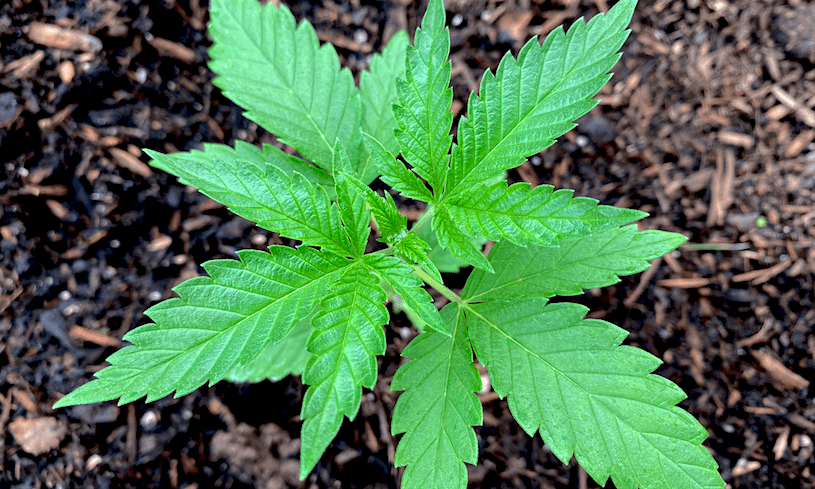Politics
Kansas Senators Take Up Medical Marijuana Legalization Bill In Committee

A Kansas Senate committee on Wednesday held the first of two scheduled hearings this week on a medical marijuana legalization bill.
The legislation was taken up by the Senate Federal and State Affairs Committee, which is sponsoring the bill as a panel. Members heard from proponents and neutral witnesses who shared stories about their personal experience with the plant, research into the medical potential of cannabis and more.
People with chronic migraines, spinal injuries, as well as medical professionals, academics, veterans and industry association representatives spoke in favor of the proposal.
Randall Hardy, a former Republican state senator, testified in favor of the bill, stating that it is “now time for the Kansas legislature to address the need for the expanded use of medical cannabis for Kansas seniors and, really, all citizens of the state.”
“We hope that you would make sure that seniors all across the state of Kansas would have easy access to medical cannabis through the process you’re establishing,” he said.
Tuck Duncan, a lobbyist for the Kansas Cannabis Industry Association, told members of the committee that the legislation is “ready for primetime.”
“Those who oppose medical marijuana, quite honestly in my opinion, are on the wrong side of history,” he said. “If not this year, it will happen.”
Kimberly Krueger, secretary of the Kansas Cannabis Coalition, went through some recommendations to amend the legislation and concluded by pointing out that polling shows majority support for the reform among Kansans.
“It is past time to pass legislation ensuring safe, affordable, tested Kansas products that will in turn create an inclusive industry within our state,” she said.
“There is a solution for my pain. Please allow me to use it—while my kids are still young and my parents are still alive,” another witness implored the panel after detailing her history with chronic migraines. “I have so many memories left to make. Please allow me to make them.”
The director of the Alcoholic Beverage Control division under the state Department of Revenue gave neutral testimony on the proposal, advising members that the agency is requesting primarily technical changes to the bill.
State Fire Marshal Doug Jorgensen also gave neutral testimony and told the committee that “we will need to be able to hire some additional staff and we’ll need additional funding, and we were not included in the fiscal note.”
The additional staff would be required in order to deal with fires and other emergencies as cannabis businesses are built and renovated if the legislation is enacted.
Sen. Tom Holland (D) raised a number of concerns with the bill as introduced, for example saying that allowing the sale of cannabis plant material and seeds to patients could open the door to illicit distribution. He also said he felt that the measure has a multi-state operator bias that “works against the interest of the existing Kansas businesses who could participate in this deal.”
Another hearing on the bill will take place in the panel on Thursday, with opponents set to testify. The legislation could potentially be taken up for a vote on Friday.
The committee held two hearings featuring numerous opponents testifying on the general topic of marijuana reform earlier this month.
Chairman Sen. Mike Thompson (R) said that he felt it was important to dedicate meetings for the opposing perspective because supporters were given the chance to weigh in on an earlier version of the legislation during a series of special committee hearings last year.
In 2021, a medical cannabis bill passed the House but stalled out in the Senate.
The committee also recently introduced a separate medical cannabis legalization bill. It’s not clear if or when members might take up that proposal.
Senate President Ty Masterson (R) previously said that he expected bills and hearings on the issue this year, and a spokesperson said that the senator understands that perspectives are “maturing” on medical marijuana—though the spokesperson also said the issue is “not a priority.”
Here are the main components of the Kansas medical marijuana legalization bill, SB 135:
Patients would be able to buy and possess up to a 30-day supply of cannabis (at least three ounces) from licensed dispensaries.
Smoking and vaping marijuana products would be prohibited.
Patients could receive a medical cannabis recommendation from a doctor for one of 21 conditions, including cancer, epilepsy, post-traumatic stress disorder, multiple sclerosis and chronic pain.
Regulators would be authorized to add conditions to the list, and the bill also lays out the process for people to petition for new qualifying conditions.
The penalty for possessing up to 1.5 ounces of cannabis would be reduced for people who aren’t registered, making the offense punishable by a $400 fine if they provide a doctor’s recommendation for medical marijuana.
There’s also a reciprocity section providing legal protections for people who are registered medical marijuana patients in other states.
The Health and Environment Department would be responsible for regulating the patient-facing aspects of the program, including issuing medical cannabis identification cards.
A Division of Alcohol and Cannabis Control would be tasked with overseeing the licensing of medical marijuana cultivation facilities, laboratories, processors, distributors and retailers.
A Medical Cannabis Advisory Committee would be established under the department to advise on the implementation and enforcement of the marijuana program.
Registration-related fines and fees would go into a Medical Cannabis Registration Fund, with those dollars supporting the costs of implementing the program.
Regulators would have until January 1, 2025 to adopt rules for registering patients, issuing medical cannabis cards, licensing businesses, defining what a 30-day supply of marijuana would be and more.
Medical marijuana products would be taxed at 10 percent.
After covering administrative costs for the program, tax revenue would go to a local medical cannabis enforcement fund (20 percent) and a statewide enforcement fund (10 percent, or up to $2.5 million per year). The rest would support the general fund.
Marijuana products could not exceed 35 percent THC for flower; 60 percent for tinctures, oils and concentrates; 3.5 grams for edibles and 10 milligrams for patches.
There would be a petition process for regulators to consider adding other approved methods of consumption to the program.
Licensing fines and fees would go to a “Medical Cannabis Business Regulation Fund” that supports “payment or reimbursement of costs related to the regulation and enforcement of the cultivation, testing, distributing, possession, processing and sale of medical cannabis.”
The legislation also authorizes the state to enter into intergovernmental agreements with Indian tribes to allow medical cannabis businesses within their territory.
—
Marijuana Moment is tracking hundreds of cannabis, psychedelics and drug policy bills in state legislatures and Congress this year. Patreon supporters pledging at least $25/month get access to our interactive maps, charts and hearing calendar so they don’t miss any developments.
![]()
Learn more about our marijuana bill tracker and become a supporter on Patreon to get access.
—
In her annual State of the State address in January, Gov. Laura Kelly (D) said that there’s a “commonsense way to improve health care here in Kansas—and that’s to finally legalize medical marijuana.”
She cited a recent example of a terminally ill man whose hospital room was raided by police and who was given a later-rescinded citation to appear in court over possession of a cannabis vape and extract that he was using to treat serious pain. That man has since passed away.
That story prompted a renewed call for reform from Kansas Democrats, who’ve worked to advance medical marijuana legalization in recent sessions but haven’t been able to get it enacted.
Meanwhile, members of the Special Committee on Medical Marijuana held their final meeting in December as they worked to prepare legislation for the 2023 session.
The panel, which toured a Missouri cannabis cultivation facility late last year as part of their work, went over the wide range of issues that they’ve been discussing with officials and experts in recent months.
Potentially complicating efforts to enact reform this session is the fact that Sen. Robert Olsen (R), who put significant time into studying medical cannabis as a leader of the special panel, was replaced this session as chair of the Senate Federal and State Affairs Committee, which introduced this latest bill and has jurisdiction over it.
Also, Rep. John Barker (R), who worked on the issue as chair of the House Federal and State Affairs Committee, lost his primary bid last year and is no longer in the legislature.
Then-House Minority Leader Tom Sawyer (D) and Assistant Minority Leader Jason Probst (D) said last year that they wanted to let voters decide on legalizing medical and adult-use marijuana in the state.
The governor, for her part, previously pushed a separate proposal that would legalize medical cannabis and use the resulting revenue to support Medicaid expansion, with Rep. Brandon Woodard (D) filing the measure on the governor’s behalf.
Kelly has she said she wants voters to put pressure on their representatives to get the reform passed.
Following President Joe Biden’s announcement on pardoning people who’ve committed federal marijuana possession offenses and imploring governors to follow suit, Kelly said that her administration is “focused on legalizing medical marijuana so that Kansans with severe illnesses no longer have to suffer.
She added that they will “continue to consider all clemency and pardon requests based on a complete and thorough review of the individual cases.”
The governor also said in 2020 that while she wouldn’t personally advocate for adult-use legalization, she wouldn’t rule out signing the reform into law if a reform bill arrived on her desk.
















